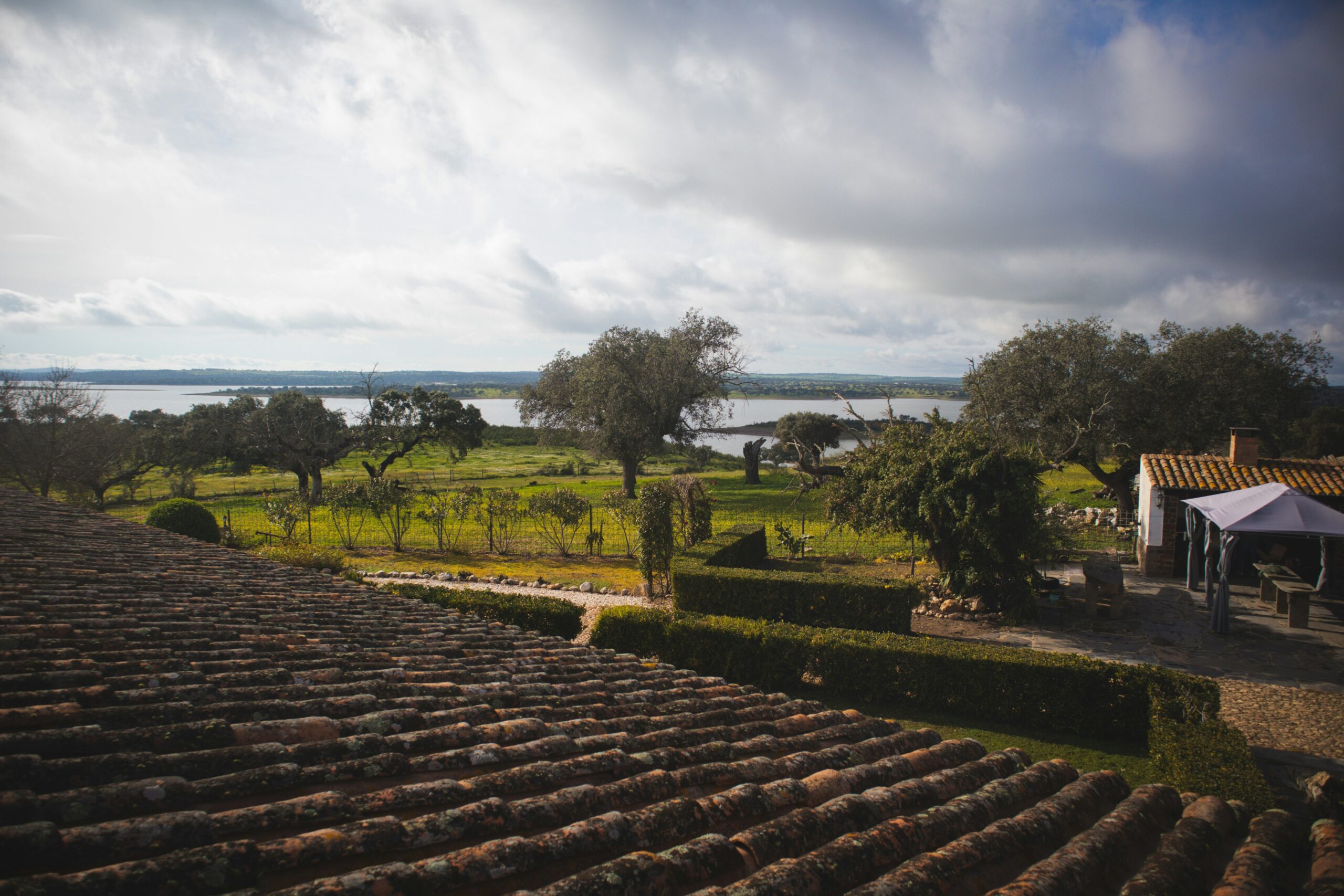Autonomous adaptation to droughts in an agro-silvo-pastoral system in Alentejo

This case study was originally published on the Climate-ADAPT website – for more information please visit the case study page. Climate-ADAPT aims to support Europe in adapting to climate change by helping users to access and share data and information. The platform includes the Climate-ADAPT database that contains quality checked information that can be easily searched.
Introduction
Guided by the ethics of agroecology, a Portuguese farm is implementing a food production model based on the respect for nature, aligned with the objectives of sustainable development and able to protect water resources in a drought prone area.
Herdade do Freixo do Meio is multifunctional landscape that is located in the Alentejo region, in the south of Portugal. It hosts an organic certified farm, a historic archeological area and a natural protected area over a surface area of 584 hectares. The farm managers implement concepts of agroforestry, agroecology, regenerative agriculture, holistic management, permaculture and food sovereignty.
The farm has been implementing various sustainable agriculture techniques while keeping itself economically viable. It is especially committed in raising awareness about sustainable farming and has autonomously implemented adaptation measures to deal with a changing climate especially needed due to the increasing intensity and frequency of drought events. It has also been recognized as a Private Protected Area, belonging to the Portuguese Network of Protected Areas.
You can read about the full case study on the Climate-ADAPT website.

Comments
There is no content